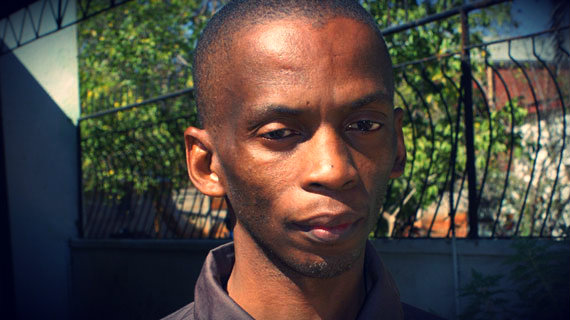
THE greatest challenge facing Africa is its oxymoronic economic state where the continent on one had boasts unequalled natural resource endowment and yet on the other the continent continues to labour under the yoke of poverty and underdevelopment.
Interestingly according to a paper produced by Trust Africa on Illicit financial flows, Africa has lost between $1,2 trillion to $1,4 trillion in a 30-year period from 1980 to 2009.
This is in spite of the fact that Africa contributes almost 42% of the world’s gold reserves not to mention a significant proportion of the world’s diamond, chrome and platinum deposits.
In spite of this Africa continues to suffer the indecency of poor human development indicators such as lack of access to health, education, water and even basic food security. Why is Africa so rich and yet so poor?
Lessons from the Bible The Christian Bible tells of an interesting episode in the history of the nation of Israel when there was not a single “blacksmith in Israel” because the Philistines feared that if the Israelites had their own blacksmiths they would make their own weapons.
The net result of the lack of blacksmiths was that the Israelites went to their “rivals to have their agricultural implements sharpened ”.
The key lesson here is that any nation or any group of nations that does not have the technology or means of processing their own raw materials will remain forever slave to other nations.
This brings to the fore some key imperatives for African countries namely:
- Chamisa under fire over US$120K donation
- Mavhunga puts DeMbare into Chibuku quarterfinals
- Pension funds bet on Cabora Bassa oilfields
- Councils defy govt fire tender directive
Keep Reading
Beneficiation and value addition This is not a revelation as African activists from the time of Patrcie Lumumbu and Nkwame Nkrumah have been harping on the importance of Africa producing finished products instead of exporting raw materials to West and then reimporting finished goods from the same countries at higher prices.
Some 60 years later after numerous heads of State summits, regional Sadc, Ecowas, Comesa and African Union Summits there has been a spectacular failure to translate the language of Pan-African economic renaissance from the mumbo jumbo of rhetoric into practical action.
The imperative of value addition is noted in the Zimbabwe government’s ZimAsset policy blueprint and more recently at the Sadc heads of State and government’s summit it was a key motif.
Curbing illicit financial outflows The Sadc Peoples’ Summit hosted by the Southern Africa People’s Solidarity Network ( a consortium of civil society organisations) met in Bulawayo recently and robustly proposed that African nations needed to curb the “illicit financial flows from Southern Africa ”.
Importantly, it must be noted that the amount of money which Southern Africa and generally Africa loses as a result of illicit outflows is much more than what Africa seeks in aid.
In effect Africa is like a man who carries a huge bag which has gold and diamonds and every treasure imaginable.
However, the bag has a huge hole and the man keeps on losing his treasure. Instead of fixing the hole, the man begs for money from his neighbours to get food for his family.
What an irony and what a tragedy? There is need for African countries to ensure that leakages are plugged through tighter revenue collection mechanisms and anti corruption structures.
Sadly it is not just multi national corporations that contribute to the illicit outflows of finances from Africa but also corrupt African leaders many of whom have more money in European capitals than in their home countries.
Regional integration I feel it is critical for African countries to expedite regional integration through regional economic groupings such as Sadc, Ecowas and Comesa.
Traditionally these groupings have been too immersed in issues of politics and security at the detriment of economic development and integration .
It is critical for regional economic integration to be prioritized so that African countries do not compete against each other for markets, but are able to harness their collective potential and collect a larger economic dividend through greater leverage.
Currently most African countries do not have the leverage to negotiate with both Western and Chinese companies and institutions because of a lack of harmonised regional markets and processes.
Imagine Zimbabwe, Zambia and Mozambique as individual countries trying to compete with the European Union which already has a common currency and political level structures and systems.
Regional economic development projects It is imperative for Southern Africa in general and Southern Africa to vigorously explore the formulation of regional, sub-regional and continental infrastructure projects so as to ensure even economic development and greater value for capital and investment.
Such projects should focus on energy, water, transport and extractives. Funding models could be premised on private public partnerships which are well articulated in the New partnership for Africa development (blueprint).
A good example of such projects is the West Africa Power Pool which seeks to create a regional electricity market for West African countries by ensuring that countries in Ecowas have critical energy infrastructure.
Quite possibly the Zambezi Water Project could be viewed a regional project that could benefit Botswana and Zambia, among other countries.
This would ensure a broader funding/investment foundation with greater social and economic returns.
Regional integration will fail as long as there is uneven infrastructural development within let’s say Sadc countries as it would then be difficult for good and services to move within the region due to poor road or rail infrastructure .
Africa needs innovative leaders who are not stuck in history or steeped in the politics of blame and corruption .
Mayibuye .
Dumisani Nkomo is a political commentator and chief executive officer of the Habakkuk Trust. He writes in his personal capacity. he can be contacted on 0779 617 926










